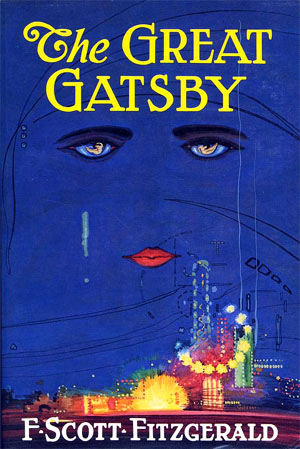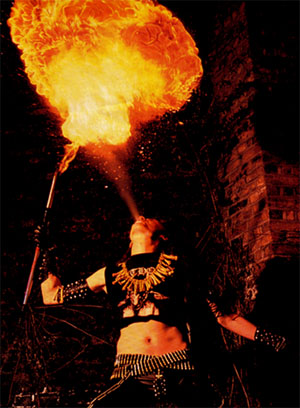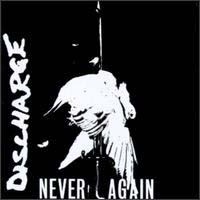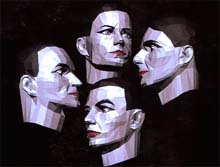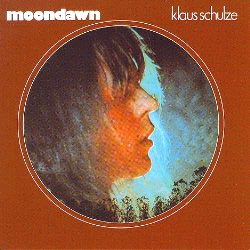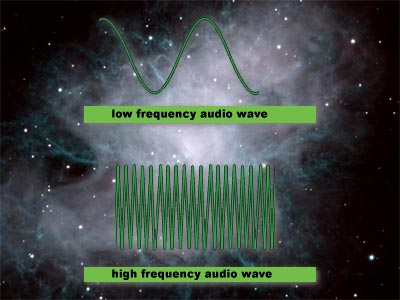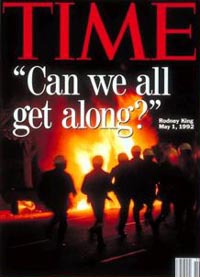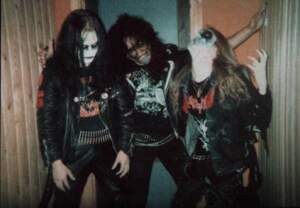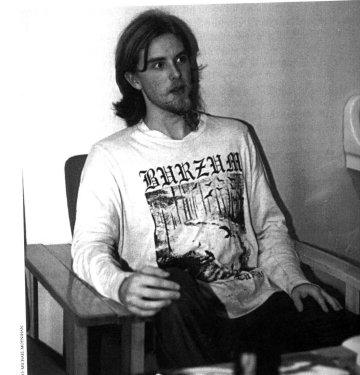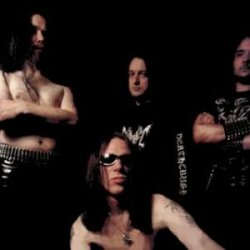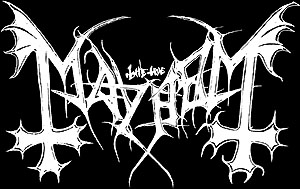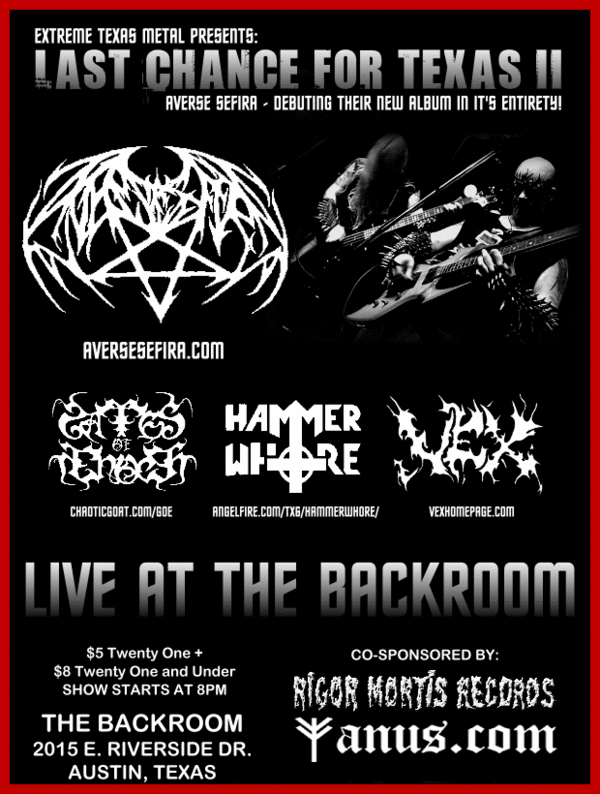Demilich, Averse Sefira, Biolich, Abythos, Sothis, To Scale the Throne and Spliteye
June 3-4, 2006
The Backroom, Austin, Texas
Walter’s on Washington, Houston, Texas
To love something is to love the world enough to believe in love, and to sacrifice all future delights which could prove an obstacle to the beloved. Underground metal — or rather the artistic music within that genre which seeks to expand knowledge and experience instead of pleasing the Crowd with novel interpretations of what they already know — is a work of love. The Demilich/Averse Sefira shows in Texas were such a heroic undertaking.
With minimal funds for promotion, and a style that can both be recognized as technical yet does not fit into the “technical” vibe of jazzy death/prog rock, both bands undertook a journey of reconstructing an underground where the label underground has come to mean something as typecast and invariant as mainstream pop music. Because most people in metal are already invested in this predictable cycle of purchase impulse and reward, many of those already in the “underground” not only ignored but actively opposed this attempt to resurrect the better values of black and death metal’s vital years.
AUSTIN
Spliteye took the stage early and, entirely professionally, banged out their blend of old school death metal and nu-metal hitch beats to a few stalwarts. They were followed by Texas black metal band Abythos, who made wholly derivative sound that was musically competent but expressed nothing but the desire to be in a band, and California act Sothis, who fused Dimmu Borgir and Cradle of Filth in a rock style. Sothis brought a trailer of equipment including extra amplifiers, three keyboards, guitar processors, and the like, which naturally blew the power system and shortened their set to three songs. After them came New York avant-grind band Biolich, who apparently began life as a Demilich cover band but now creates songs that hybridize Napalm Death, Neurosis, Godflesh and indie/avantgarde rock.
After a prolonged and somewhat futile sound check (the Backroom is built on an ancient Indian burial ground whose time/space distortion renders any sound system incomprehensible), Averse Sefira smashed out a set of five songs from Tetragrammatical Astygmata and three from their first two albums. Facing a tough re-integration for their first show of the Texas mini-tour, the band became cohesive on the third song but played a looser, noisier set that was reminiscent of early Voivod covering Immortal. Averse Sefira played nearly nonstop, the stage rattling with the pulse of their drummer’s battery, and provoked an excited crowd response. The looser rhythms gave the band a chance to work its stage presence, pushing the warriors in full regalia (spikes, leather, bullet belts, corpsepaint) nearly into the crowd. Among those who could understand compound sentences response was favorable.
Local luminaries from Masochism, Cthonian Appanage, Acerbus and Vex appeared during the Averse Sefira set, as did promoters from Extreme Texas Metal and Morbid Thoughts Records. There was a biker conference in town so several of these showed up determined to demonstrate that bikers are just as stupid as the rest of the population and thus worthy of assimilation into mainstream culture. Members of the crowd who were fond of one or another of the opening bands, adhering to the cognitive dissonance that supposes that bigger bands oppress smaller bands and that is the only reason smaller bands are openers and not headliners, stood back with disgruntled faces and drank $4 beers. No one noticed the whining, and by the time most observed the above, Demilich were doing their sound check and taking the stage.
Two things are immediately observable from Demilich live: the integral synchronization of five musicians through difficult material, and the sleepy-eyed offhandedly casual presence of frontman Antti Boman, who burped and gurgled like a demonic frog throughout the performance. Although Boman unites the action, the martial presence that leads it is the industrial/jazz hybrid drumming of Mikko Virnes. Although original bassist Ville Koistinen was absent, the low-end complement of Corpse (his day job is in Deathchain) thrust the music forward with the pulsing, visually dramatic attack found in bands like Motorhead or Suffocation, which enhanced the abstract tendencies of this music with an earthy, sensual grounding. It drove forward like metal, cycled in on its harmonies like jazz, and migrated between ideas like classical. This aspect of the music of Demilich suggests not only the potential seen by original death metal musicians, but calls to mind a time when most death metal bands were distinctive not because they sought a way to “be different” but because each had its own concept of reality and had crafted a musical style to express it. At the end of the set, diehard Demilich fans were satiatedly exhausted and the Crowd at the bar remained baffled and unsure of socially approved response. Thumbs up from this reviewer.
HOUSTON
The nation’s fourth-largest city is known for its Los Angeles-style layout, having grown entirely after the advent of the personal car and the warehouse-style suburbs that boxily fringe the rotted core of unskilled labor that is the inner city. Consequently, any event requires travel, and to unite Hessians from the city wide requires good publicity, yet there’s no agency for such things. With the demise of the independent record store thanks to a shrinking profit margin and rising Internet file-sharing, there are few places to post fliers where metalheads will see them, and the magazine Rivethead is no longer in print so there’s no news source. Our L.A. Weekly-themed paper, the Houston Press, is expensive advertising for underground shows. And local bands? William Burroughs noted that “itinerant short con and carny hipsters have burned down the croakers of Texas,” and it’s not much different in metal: our scenes are cannibalistic. Each band self-promotes so aggressively that its only sense of community is as a means to that end, and thus plenty of lip service to “scene unity” occurs but no one takes the simple step of supporting only bands of quality. It’s either all or nothing. Because of this intense Balkanization of fans, each local band has its cadre of people who can be conned into coming to the show and for this reason each metal show in Houston has more bands than a compilation and the same 83 grubby people attend. The venue treated this performance like a local show, called the usual people, opened the bar and left it at that, so attendance was poor. To their credit, both headlining bands performed as if they were at Carnegie Hall and ignored the fact that this giant city produced only a few attendees.
The lineup was much the same as in Austin except with the addition of To Scale the Throne, a local band who throw in pieces of Emperor, Satyricon, Grand Belial’s Key and Cradle of Filth but play music that fits the patterns of punk hardcore: verse, chorus, breakdown, reprise. It wasn’t good; it wasn’t bad: it wasn’t important. This reviewer caught Biolich in Houston. Their performance was professional. The music can be described as modern hardcore with infusions of indie rock, early grindcore and drone. Two major factors influence appreciation of this performance. First, one cannot take a technique-oriented approach to producing art, because art is a communication between artist and audience in a way that is both entertaining and profound; the artist must have something to say, and use technique to that end, because making art on the basis of technique alone produces a uniform texture of affect on the audience. Next, one must realize that when emo and hardcore merged, they created a style of music based on skipping the path to a destination for cyclic demonstration of that destination’s importance, resulting in music without suspense or adventure. Ultimately, it drifted into “safe” territory both ideologically and musically, and reduced its own importance. With this in mind, it is clear that while Biolich are musically adept and have pushed many boundaries of technique, their songs remain unconvincing. The suspended rhythmic hook of progressive hardcore rapidly starts to resemble the bounce of nu-metal, and the jumble of styles creates a neurosis of inspecific contextual framing. Elements of this music were quite good, including the crisp but jubilant drumming and experimentation beyond obvious harmonics extending to Godflesh-like implied melodies via drone. If this reviewer had any advice, it’s this: stop trying to shock or stimulate, chuck all the grindcore parts, and finish the songs you started on the indie parts, because that is where this music really shines. As it was presented, the music seemed promising but insubstantial although the professionalism of band and stage show were appreciated.
Since the venue was in a Beirut-style urban meltdown area of Houston and the audience paltry, this show felt entirely like an underground chamber music event during the Inquisition. A city oblivious went on watching overtime repeat “Friends” episodes and buying furniture at Ikea while an exceptional and artistic performance graced its sonic topography and one of the most amazing metal performances to ever grace the city tore apart the night. Averse Sefira took to the stage first without pretense and lanced ears with a fast, accurate and yet impassioned version of their setlist from the previous night, with the addition of “Detonation” in the middle. Touches of improvisation in vocals and stringed instruments created an organic specificity to the music which belonged to that night alone, and the energy level remained high as the music moved between different moods. What distinguishes this band is their willingness to write passionate melodies and put them in songs that uphold all of the savagery and feral wisdom of heavy metal, and this came through in a mesmerizing forty-five minutes of complex but intuition-friendly music. Those who were present exchanged glances as if to say “How did we get this lucky?” and several longtime observers commented on how effective this band is in a smaller setting. If you missed it, punch yourself in the face.
Demilich assembled onstage and, exchanging a glance, launched into their set like a machine firing in the mist and frost of a neglected morning. Utilizing three guitarists, their brand of technical death metal relies on complement more than a continued layer technique, with each instrument presenting a different view of the whole and then achieving synchronization over the course of songs. Stringed voices peel off and converge, then take on parts of the whole much as earth and sky are required for a horizon. One guitarist, sds, plays chords underlying the melodic lead riffing which is exchanged between two lead rhythm guitars harmonizing while Boman’s belching underscores the rigid yet engaging percussion. The setlist was the same except for a new song (title unknown) which veered between peaks and valleys of tone with sweetened acid melodic differential between riffs, producing an aura of instability yet deliberation. The lead rhythm guitar of Aki Hytönen was as exactingly precise as it was freespirited, and often melted off into solos both chaotic and commenting on the sonic landscape beneath. Like evolution viewed through geographic time, the band fell off and reunited with a depth of harmony that caused the entire club to resonate with the distinctive symbolism of geometry. A drained audience filtered into humid darkness after a set demanding of both listener and band; it was probably the most technically impressive performance of mainstream music this reviewer has seen (jazz itself, while requiring one basic skill, does so at the expense of reasoned composition, and soon approximates a mean without dramatic fluctuation in intensity). Did you miss it? Punch self in face.
Luminaries from abroad and local dotted the crowd: Cynical, kontinual, Keltic Myth, g0sp-hell, Gestalt, Lyle from Brooklyn and one guy from Hellwitch who demonstrated the importance of having a video camera where Children of Bodom is concerned. There was a sense of privilege and fortunate accident for all who witnessed this unique performance, and an unsettling feeling that perhaps Houston has some inner fracture which prevents its metalheads from recognizing the musical (but not “scene points”) importance of such a gathering.
OBSERVATIONS
As metal is a hybrid, made half of ancient belief and filled in with modern popular art, its artists are suspended between getting the attention of “the community” and expressing something of that which is eternally metal, namely the worship of raw power and realism in a human world of sentiment which avoids it. Most of its artists convert this into a sterile emotion which like the receptacle tip of a condomn catches anger and neutralizes it, but the best escape this mould. However, repetition does not enhance a genre but makes it prone to erosion, since repeated structures fall in a row when the same force is applied to them. Ask all the hardcore punk fans who, after “equalizing” the genre into a participation-fest, were stunned when it evaporated overnight because no one could any longer tell the difference between bands. “The community” is its own worst enemy, and far from being manipulated by a twisted controller, it is driven by the desires of individuals who, when enough join in, drown out any clear voices with the distorted murmur of a mass.
Thus for those who seek quality music, it is more important to assess the music itself than to care about the most popular pundits, because these people are walking brainstems who repeat in “unique” ways what others have said and quickly run the genre into uniformity. This form of informational entropy seems important when it’s new, and is hard to distinguish because the bands in question will probably be able to play their instruments just fine, but have nothing to say. The musics that exemplify the opposite tendency, which is for the few realistic and yet imaginative artists to create works which will be praised years on by listeners baffled as to why more people did not “get it,” are ignored — for now. Yet we are all familiar with the old refrain that it was better back in the formative years, and all of the bands now lack something the founding bands did not. They are more distinctive in using different instruments, mixing in different styles, or having “unique” appearances, and they’re musically far more competent, but there’s a question as to what the music means. Interestingly, this blight is shared across literature and music and visual art at this time, suggesting that a combination of populist “entertainment” and a lack of comprehension of meaning itself among artists, has obliterated not only quality but the valuable tenet of having something to express in art among these contemporaries. Self-importance of the artist, and preaching to the converted through “safe” ideologies, has produced music that repeats its own premises instead of discovering not new but experience-laden ground; these songs and stories tell us nothing other than to sit quietly and imbibe the cliches and commonly-held truths of a culture that, lacking an integral component, derives its knowledge from paid entertainment that appeals to the broadest possible group. Could it be a sign of the decline?
It is no surprise then that it is neutral art, whether we call it bourgeois or suburban or plebeian, because we learn nothing from it except a unique combination of aesthetic values. Paintings do not touch our souls, but they match our towels and perhaps are calibrated according to the paint colors for sale at our local malls. Music is background to television watching or work, and cannot be unsettling or educational or evocative or provocative, no matter how many obscene or blasphemous elements it uses. How many of those kids chanting “Fuck you I won’t do what you tell me” along with Rage Against the Machine actually did anything about it? It’s false art, propaganda and degenerates rapidly. Art like the actual underground nurtures what is true and denigrates the false through a representation of experience and wisdom, and never comes full circle to its premise like postmodern art. It takes one through a wandering route to a new place that is also familiar with the old, with its origin… we can only praise those who are slowly but embitteredly learning that there are no new truths, only new statements of eternal truths, and that our entire detour into “progress” in music has been on the surface/aesthetic level and has resulted in empty, pointless, interchangeable “art.”
Bands:
Demilich
Averse Sefira
Promoters:
Morbid Thoughts
Extreme Texas Metal
